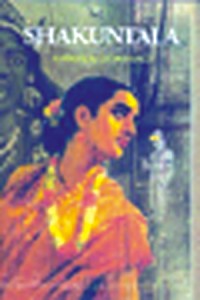Book Review
Plight-of-an-oppressed-woman storyline
Munjulika Rahman
The protagonist Shakuntala of Namita Gokhale's Shakuntala: The Play of Memory is named after the fifth century dramatist Kalidasa's heroine Sakuntala. While the original Sakuntala is a helpless nymph who is deserted by her husband King Dushyanta and needs her mother Menaka, 'the celestial apsara,' to put things right for her, Gokhale's mortal Shakuntala is bold and restless at a time when women are confined to the household. Shakuntala questions the rules and customs of society, and when the opportunity arrives, she goes out into the unknown to satisfy her adventurous spirit. Shakuntala is born into a poor 'vanvasi' family, hill people who live near the forests of the mountainous areas in India. She grows up roaming the woods, and spends her time watching clouds and birds. Shakuntala's brother Govinda is predicted to be a great rishi, a descendent of a great line of sages. Their mother gives all her attention to his education and care, neglecting her. Once deeply hurt by the mother, Shakuntala runs away from home and meets a rock-demoness who gives her shelter. She teaches Shakuntala about the many faces of the mother-goddess who takes many forms, but is always "Swamini, mistress of herself." Shakuntala is married off to a wealthy man, and although they share a happy life, seeing traders and pilgrims and horses, Shakuntala feels there are 'thoughts and events and people' in far off lands that she is yet to see and experience. If men can travel and seek, why is it 'unseemly and inappropriate' for women? When her husband brings home a mysterious handmaiden from his travels, Shakuntala is consumed with jealousy. While praying by the Ganga, she meets a Greek traveler and runs away with him leaving her respectable home. Shakuntala wanders with him from place to place and gives up all her societal bindings to lead a life of pleasure. But this carefree lifestyle is not enough to satiate her restlessness and she wanders off in the holy city of Kashi. In the novel, Gokhale's language flows easily, and has a wistful edge to it, which serves as a reminder of the many precious things Shakuntala has lost in her lifetime. The tone of the novel is quiet and a bit haunting, because of the supernatural and the mystic that have a constant presence in the background of the story. Perhaps this is enhanced by the knowledge that Shakuntala is already dead at the beginning of the novel, and the story is a flashback recounted by her spirit. Gokhale's other books such as A Himalayan Love Story (2002), Gods, Graves, and Grandmother (2001), and The Book of Shadows (1999) also have strong female characters who deal with love, lust, death, and often the supernatural. Gokhale is a journalist in Delhi whose work focuses on women's issues and literary criticism. Her first book Paro: Dreams of Passion, which was published in 1984, is said to have 'pioneered the sexually frank genre' that would later characterize Shobha De's work. Gokhale draws deeply from Hindu mythology and philosophy, and although some of the symbolism in Shakuntala can be easily understood, others are vague. The metaphorical use of incidents and dialogues maybe lost on a reader not fully familiar with Hindu philosophy. It took Gokhale five years to write Shakuntala, and in her own words, it is 'her most painstaking work.' The in-depth research about the time period and the historic places that was required for the novel is evident in the lively and pictorial descriptions that add greatly to the plot, which drags at some points. Shakuntala's grievances about being oppressed and her restlessness are constantly brought up by Shakuntala herself as she narrates her story, and this makes the plot monotonous at times. The novel cannot quite transcend the plight-of-an-oppressed-woman storyline, and it is, at the end, about a woman who lives life her own way, in defiance of social and religious obstacles. Virginia Woolf says in A Room of One's Own that a great work by a woman must be about something more than just the struggles of women in a male-dominated world, and Shakuntala does not seem to succeed in that aspect. Nonetheless, Shakuntala is an informative read, and Gokhale's words are often intricate and lyrical. Even though the protagonist's death is certain, the end does have a surprise for the reader in the form of a chapter that is numbered '00'. Munjulika Rahman studies at Randolph-Macon Womens College, USA.
|

Shakuntala by Namita Gokhale: Delhi: Penguin Viking; 2005; 208 pp.; Rs. 275. |